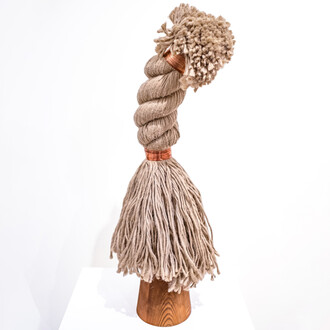I think I am a realist, because I make what I see. It’s only the problem of seeing it. If you can imagine a thing, then you can make it and ‘tout de suite’ you’re a realist (…). The universe is real, but you can’t see it. You have to imagine it. Once you imagine it, you can be realistic about producing it.’
(Alexander Calder (1898–1976) ‘Artists voice, 1962’)
Salon, in collaboration with Omer Tiroche Gallery, is pleased to announce its third exhibition, Calder on Paper: 1960 – 1976, a presentation of gouaches on paper by the American artist Alexander Calder, opening 27 September 2017.
Despite being most widely celebrated for his mobiles (also known as ‘drawings in space’), Calder (1898 – 1976) began his artistic career as a painter, developing his gouache technique in the 1930s while living in Paris. He preferred working with gouache over oil paint and watercolour because it dries more quickly, and for the medium’s opacity of colour. The works exhibited at SALON were made between 1960 and 1976. Alongside this presentation, Omer Tiroche Gallery, Mayfair, London, will show a collection of earlier works on paper by the artist dating from 1939 to 1959 (2 October until 8 December 2017). Exhibiting work from two separate periods of Calder’s career serves to create a comprehensive retrospective of his gouaches. It also ensures that a greater number of works will be on display across the two spaces – both familiar and unfamiliar to the viewer – which in turn greater elucidates Calder’s contribution to the development of modern art.
Calder’s gouaches were first exhibited at Kootz Gallery in New York in 1945, and were well received by critics, who called him ‘a possible rival to the likes of Klee and Miro.’ Calder maintained a sense of playfulness and humour throughout his career, often creating new forms and works by rearranging his extant visual vocabulary. Highly regarded for their immediacy and purity of colour, line and form, the gouaches are an integral component of Calder’s oeuvre, reflecting and inspiring the sculptural practice for which he is renowned.
Taking certain aspects from his mobiles, such as ideas of kinetics and angularity, the works displayed at both galleries illuminate Calder’s celebration of nature. In particular, the exhibition of later works at SALON gives a glimpse of Calder’s personal observations and impressions of the solar system, the animal world, primitive civilisations and basic geometric figures such as spirals, circles and triangles.
















